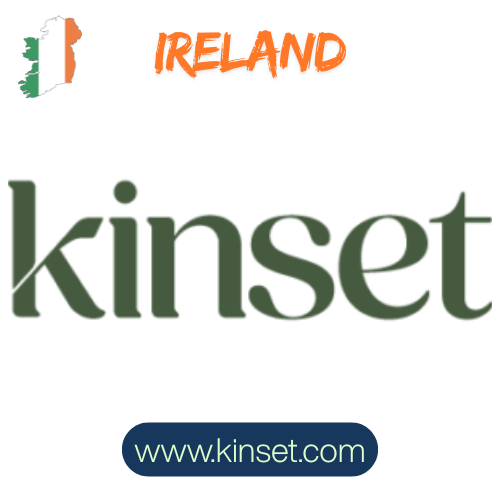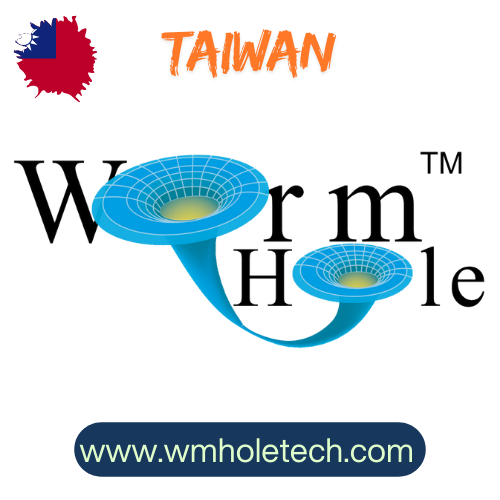ProKnoWara Consulting Firm’s EU Digital Product Passport (DPP) Strategic Solution Partners
ProKnoWara Consulting Firm signs MoU with Orobo Tech, marking a major step forward in supporting EU Digital Product Passport (DPP) implementation across Bangladesh and South Asia.ProKnoWara is working with DeviceStamp to deploy Digital Product Passport (DPP) and product identity infrastructure as part of this pilot. Joint announcement · DeviceStamp textile solution
ProKnoWara Consulting Firm Appoints Dr. Lutz Krüger as EU Digital Product Passport Strategic Advisor.Active-Sites Consulting and ProKnoWara Consulting Firm have signed a 𝗠𝗲𝗺𝗼𝗿𝗮𝗻𝗱𝘂𝗺 𝗼𝗳 𝗨𝗻𝗱𝗲𝗿𝘀𝘁𝗮𝗻𝗱𝗶𝗻𝗴 (𝗠𝗼𝗨) to collaborate on 𝗗𝗶𝗴𝗶𝘁𝗮𝗹 𝗣𝗿𝗼𝗱𝘂𝗰𝘁 𝗣𝗮𝘀𝘀𝗽𝗼𝗿𝘁 (𝗗𝗣𝗣).Check our partnership on Active-Sites website: https://consulting.active-sites.de/
ProKnoWara Consulting Firm and Blippa Sign Strategic MoU for EU Digital Product Passport Implementation. ProKnoWara Consulting Firm and Kinset Sign Strategic MoU to Advance EU Digital Product Passport Infrastructure in Bangladesh. K4Security and ProKnoWara Sign Strategic MoU to Support EU ESPR & Digital Product Passport (DPP) Compliance in Bangladesh. ProKnoWara Partners with Natixar to Drive EU Digital Product Passport Implementation. ProKnoWara Consulting Firm and Bloqsens Sign Strategic MoU for EU Digital Product Passport Implementation.Read on BloqSens website: https://www.bloqsens.com/news/bloqsens-proknowara/
ProKnoWara Consulting Firm and TraceSurfer Sign Strategic MoU on EU Digital Product Passport Implementation.ProKnoWara Consulting Firm and WMHOLETECH Sign Strategic MoU for EU Digital Product Passport Implementation.ProKnoWara Consulting Firm and Fluxy.One Sign Strategic MoU to Advance EU Digital Product Passport (DPP) Implementation. ProKnoWara Consulting Firm and FamilyLabs Sign Strategic MoU on EU Digital Product Passport Implementation.ProKnoWara Consulting Firm Signs Strategic MoU with ASM Global to Advance EU Digital Product Passport in Bangladesh & Southeast Asia.ProKnoWara Consulting Firm Signs Strategic MoU with Launch4 to Accelerate EU Digital Product Passport Implementation.Strategic MoU Signed Between tabulas.eu and ProKnoWara to Accelerate EU Digital Product Passport Implementation
Ecodesign for Sustainable Products Regulation
Making sustainable products the norm in the EU
Overview
Discover the new Ecodesign for Sustainable Products Regulation
The Ecodesign for Sustainable Products Regulation (ESPR), which entered into force on 18 July 2024, is the cornerstone of the Commission’s approach to more environmentally sustainable and circular products.
Products and the way we use them can significantly impact the environment. Consumption in the EU can, therefore, be a major cause of climate change and pollution.
The ESPR is part of a package of measures that are central to achieving the aims of the 2020 Circular Economy Action Plan and fostering the transition to a circular, sustainable, and competitive economy. It will contribute to helping the EU reach its environmental and climate goals, double its circularity rate of material use and achieve its energy efficiency targets by 2030.
-
The ESPR aims to significantly improve the sustainability of products placed on the EU market by improving their circularity, energy performance, recyclability and durability.
It will also play a central role in developing a strong, well-functioning single market for sustainable products in the EU.
By doing so, a significant step will be taken towards better protecting our planet, fostering more sustainable business models and strengthening the overall competitiveness and resilience of the EU economy.
The ESPR replaces the Ecodesign Directive 2009/125/EC and establishes a framework for setting ecodesign requirements on specific product groups. It extends the Ecodesign Directive in two ways.
Firstly, while the latter applies only to energy-related products, the ESPR extends this scope to cover virtually all physical products. Only a few exemptions apply, for example, for food and feed, and medicinal products. Secondly, the ESPR reinforces the range of ecodesign requirements that can be set for products, which can comprise requirements relating to durability, circularity and the overall reduction of the environmental and climate footprint of products, amongst many others.
This will strengthen the Single Market by avoiding diverging legislation in each Member State and create economic opportunities for innovation and job creation, notably in remanufacturing, maintenance, recycling and repair.
-
The ESPR enables the setting of performance and information rules – known as ‘ecodesign requirements’ – for almost all categories of physical goods, including:-
Improving product durability, reusability, upgradability and reparability
Enhancing the possibility of product maintenance and refurbishment
Making products more energy and resource-efficient
Addressing the presence of substances that inhibit circularity
Increasing recycled content
Making products easier to remanufacture and recycle
Setting rules on carbon and environmental footprints
Limiting the generation of waste
Improving the availability of information on product sustainability
For groups of products that share enough common characteristics, the framework allows horizontal rules to be set.
The ESPR also contains a number of other new measures:-
Digital Product Passport
Rules to address destruction of unsold consumer products
Green Public Procurement
-
The ESPR will introduce a Digital Product Passport (DPP), a digital identity card for products, components, and materials, which will store relevant information to support products’ sustainability, promote their circularity and strengthen legal compliance.
This information will be accessible electronically, making it easier for consumers, manufacturers, and authorities to make more informed decisions related to sustainability, circularity and regulatory compliance. It will also allow custom authorities to perform automatic checks on the existence and authenticity of the DPPs of imported products.
Information to be included in the DPP will be identified by the Commission, in close consultation with all relevant stakeholders, and will depend on the specific product in question. This information can include:
Product’s technical performance
Materials and their origins
Repair activities
Recycling capabilities
Lifecycle environmental impacts
-
Many unsold products in the EU are simply destroyed, a practice that wastes valuable resources. For the first time in the EU, the ESPR introduces measures to address this practice by introducing a ban on the destruction of unsold textiles and footwear, opening the way for similar bans in other sectors if evidence shows they are needed.
It will also require large and eventually medium-sized companies across all product sectors to disclose annual information on unsold consumer products on their website, such as the number and weight of products they discard, as well as their reasons for doing so.
-
Public authorities in the EU spend around €1.8 trillion purchasing works, goods and services.
The ESPR will help steer these funds in a more sustainable direction by enabling mandatory Green Public Procurement rules to be set for specific products. Under those rules, public authorities who purchase the products concerned will be required to purchase products that meet the highest levels of performance in terms of sustainability and circularity.
This has the potential to significantly boost demand for sustainable products, in turn, further incentivising companies to invest in this area.
-
Key dates related to the Ecodesign for Sustainable Products Regulation:-
16 April 2025
Adoption and publication of first ESPR and Energy Labelling Working Plan
19-20 February 2025
First Ecodesign Forum meeting
October/November 2024
Establishment of Ecodesign Forum and publication of call for membership applications
18 July 2024
New Ecodesign for Sustainable Products Regulation enters into force
5 December 2023
Commission welcomes provisional agreement for more sustainable, repairable and circular products
31 January 2023-12 May 2023
Open Public Consultation (New product priorities for ESPR)
30 March 2022
Adoption ESPR proposal (as part of Sustainable Products Initiative)
14 September 2020–22 June 2022
Public consultation and roadmap (Sustainable Products Initiative)
11 March 2020
Adoption New Circular Economy Action Plan
11 December 2019
Adoption European Green Deal
























